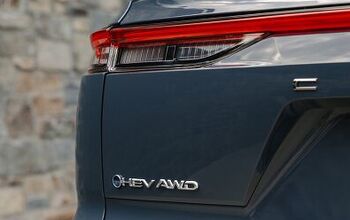Germany To Match Obama EV Goal… Five Years Later
President Obama’s goal of having a million plug-in vehicles zipping around American roads by 2015 faces some serious challenges, as report after report casts doubt on the chances of the hoped-for level of adoption in the hoped-for timeframe. Meanwhile, the president’s defense of his plan’s practicability… leaves quite a bit to be desired. Regardless, the President’s goal is receiving some unexpected support as Automotive News Europe [sub] reports that
Germany’s cabinet plans to commit billions of euros to boost the electric auto sector so that 1 million cars are registered by 2020
The 2020 goal puts Germany five years behind Obama’s 2015 goal, but then there are a number of differences between the two situations. Selling a million of anything will always be easier in the US, although higher energy costs and urban density make EVs more attractive in Germany. Germany will spend its undisclosed billions on ten-year registration tax holiday for EVs, business tax incentives and (of course) government fleet purchases, while the US largely subsidizes plug-ins through consumer-end tax credits. If nothing else, the contrast between the subsidy styles should be interesting to watch. Meanwhile, chalk this up as yet another brick in the wall for Germany’s shift towards EVs after years of skepticism… funny what one mysterious, domestically-produced “miracle battery” can do.
More by Edward Niedermeyer

































Comments
Join the conversation
The German road tax (levied according to a mixture of engine displacement and CO2 emissions - according to curb weight for EVs) is no big deal. A Nissan Leaf would cost 45 Euro a year. Exempting EVs from the tax won't move the needle. Beginning in 2009, EVs had been exempt from the road tax for the first 5 years , and what did it do?
Per DOT, the German gasoline tax is the equivalent of $4.57 per US gallon. When the pols figure out how to apply a comparable amount to electric vehicles their running cost will increase greatly.
A flawless time to roll out an EV program, while they're busy shutting down nuclear plants.
Infrastructure is always subsidized. It doesn't matter if it is road, rail, water or air